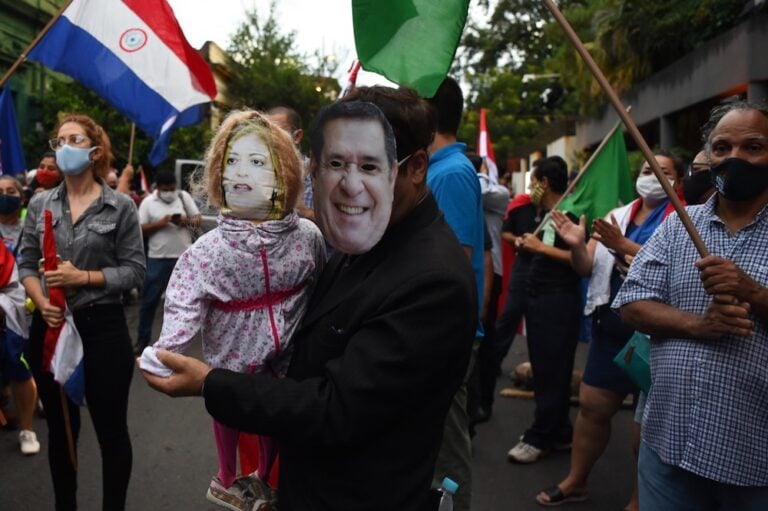(SPP/IFEX) – The following is an SPP press release: Media outlets face deteriorating labour situation, threats and firings The union of media workers is currently going through one of the worst crises ever known in the sector, with firings, threats of layoffs, cuts to pay and benefits, non-compliance with social rights and various kinds of […]
(SPP/IFEX) – The following is an SPP press release:
Media outlets face deteriorating labour situation, threats and firings
The union of media workers is currently going through one of the worst crises ever known in the sector, with firings, threats of layoffs, cuts to pay and benefits, non-compliance with social rights and various kinds of persecution.
It is not surprising that media companies have an image throughout the country as being credible organisations that respect the law and rights, defend democracy and are faithful to the principles of freedom and human dignity. However, it is important to know that what happens behind the scenes at a number of these economically-driven groups is quite different. This is clearly visible in the current series of decisions and actions which have inexorable effects on media workers.
A brief diagnosis of the situation allows for a more accurate view:
– Since December, workers at the daily Diario Noticias have faced salary rollbacks and complete uncertainty as to their future employment. Using an economic deficit as the basis for their actions, the company made cutbacks in a number of areas, which affect how work is carried out, and announced personnel reductions of around thirty per cent in all areas. It is anticipated that twenty-five editorial positions will be affected. Union representatives put forward a series of recommended actions to avoid layoffs, and the case was brought to a tribunal at the Ministry of Justice and Labour, despite the company’s reluctance. The case is still unresolved.
– At Channel 9, there were layoffs in various departments following the transfer of transnational capital. In the press sector, this measure was accompanied by strong censorship in favor of the current government, and was justified under the pretext of objectivity and impartiality. The recent departure of Stella Ruffinelli, who worked to mediate and slow down the actions of media outlets against workers, is the most obvious example of the situation and presages more damaging actions against labor stability.
– At the daily Ultima Hora, using the justification of financial difficulties, the company cut back on travel expenses and overtime. It also resisted paying extra wages for work on Sundays, which is a right that was acquired, and instead imposed time off in lieu. There is great uncertainty with respect to more drastic measures being discussed by the management, and workers have tried to initiate negotiations without success. The assembled workers have now undertaken legal actions to regain their violated rights.
– Workers at the regional newspaper Vanguardia, in Ciudad del Este, who have already suffered chronic payroll delays (which is carried out without receipts or payment of obligatory social security), are now living in a state of fear and anxiety, which was cultivated by publisher Héctor Guerín (a member of SPP, who currently stands to be expelled through a decision made by the membership). The situation is also due to mistreatment and union persecution, to which both male and female workers have been submitted. The intervention of the Ministry of Justice and Labour on these issues is being negotiated.
– Colleagues at the daily La Nacion are faced with restrictions on travelling expenses, office supply shortages, serious deterioration in working conditions, delays in payroll, and uncertainty about their employment situation.
– The situation is no different at radio stations. At the majority of the AM stations, working conditions have deteriorated, working hours surpass the legal limits and social benefits have gotten worse.
In addition to these particular cases, which make up part of the overall problem facing communications media in the country, there is a social security fiasco. A large percentage of media companies are behind in payments. Only four media companies are up to date with their obligatory payments to the Social Security Institute (Instituto de Prevision Social, IPS). The remaining outlets either do not pay or are behind, leaving thousands of journalists, administrative workers and technicians without the protection that is guaranteed them by law. In many cases, media outlets deduct the percentage corresponding to social security from the employees’ paychecks, but then never give the payments to IPS.
Together, these ocurrences give only a partial view of the true situation that the majority of the country’s media outlets are facing at this time.
Much of what is happening is the result of business adventures and foolish politics by the owners of media firms, rather than the country’s economic depression. The loss of credibility in the eyes of the public, which newspapers, radio and television face, is a result of the media’s polarisation. Outlets either defend or criticise political projects, by manipulating facts and distorting reality and have thus damaged the nature of the media, which should pursue truth, plurality and equanimity. This has a social and economic cost, which the owners once again try to shift to the workers, who ultimately generate the country’s wealth and operate its machines.
In this way, the communications media is causing social unrest by threatening to fire numerous employees (or actually doing it), thereby increasing the unemployment rate, which is already at more than fifteen per cent, and provoking the labor market’s pauperisation.
This is Paraguay’s situation. This is the current reality for media workers with whom SPP have decided to unite forces in order to strengthen the organisation, so that it can forcefully reject any move to threaten jobs and defend the basic human rights to work and dignity.
For further information, contact Julio Benegas, General Secretary for the Committee of Directors or Magdalena Riveros at Sindicato de Periodistas del Paraguay (Paraguay Union of Journalists, SPP), street address: Humaitá 186 c/Ntra. Sra. Asuncion, mai


